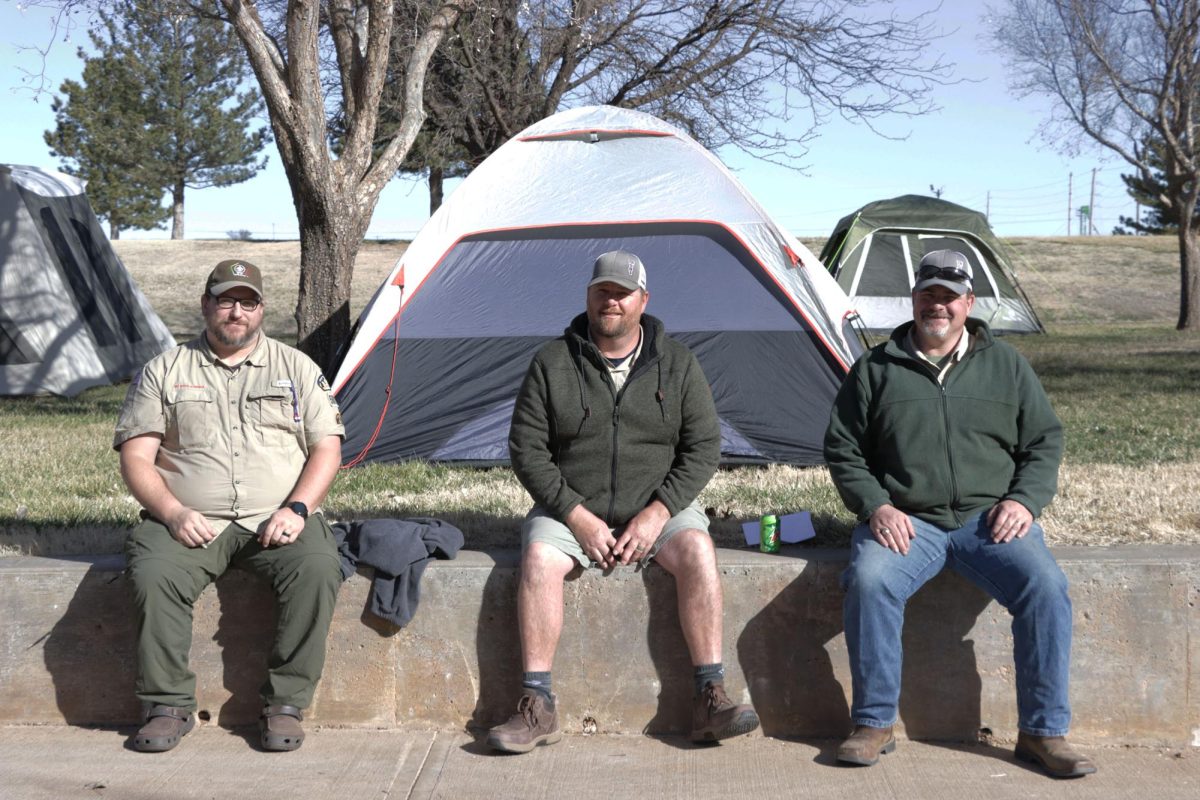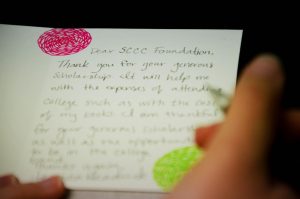Behavioral science instructor Katy Redd returned to her classrooms last week. It was after midterm, but it was the first time she’d seen her Seward students since the first several classes in August. Redd had missed seven weeks straight, and some of those weeks she can’t even remember because she was hospitalized and in an intense battle to overcome West Nile Virus.
A summer trip to Florida left Katy Redd with some mosquito bites on her arm. She didn’t think much of it, but the bites became swollen. Then there was a rash, a visit to the doctor, and, before she knew it, she was so ill with West Nile Virus her husband and son-in-law had to literally carry her to the car to get her to the hospital. She was airlifted to Wichita in an emergency situation that she can’t even remember because the disease had caused inflammation of her brain.
Typically, West Nile Virus spreads to humans and animals via infected mosquitoes. Mosquitoes become infected when they feed on infected birds. Horses, just like humans, are “dead-end” hosts, meaning that while they become infected, they do not spread the infection. Touching or kissing a person with the virus can’t infect people.
According to Mayo Clinic, most West Nile Virus infections occur during warm weather, when mosquito populations are active. The incubation period, the period between when a person is bitten by an infected mosquito and the appearance of signs and symptoms of the illness, ranges from three to 14 days.
About 20 percent of infected people develop a mild infection called West Nile fever. Common signs and symptoms of West Nile fever include fever, headache, body aches, fatigue, back pain, skin rash (occasionally), swollen lymph glands and eye pain (occasionally).
“I knew there were a couple of times in the summer that I had mosquito bites,” Redd said. “I think probably a little over a week or maybe two weeks before, we took a trip to Mississippi. We came back and then did a long weekend and went to Florida.”
Redd recalled two mosquito bites from the weekend she spent with her husband in Florida. It took a couple of days before the bites “swelled up like a big goose egg,” Redd said.
About a week later, on a Thursday, she went to the doctor to look at a rash that randomly appeared on the palms of her hands. Redd was back to work on Friday, thinking it was just an allergy. She went through her classes on Friday, and even went to the store. On the drive home, Katy started feeling bad but thought maybe she was getting the flu.
“I just started having chills and that ache,” she said. “I just went to bed on Friday evening. I have no memory from there ’til two weeks later.”
Her temperature spiked on Saturday as her family took her to the emergency room. She was sent back home with a diagnosis of a bad flu. But she was not getting better, and on Tuesday, Redd’s husband went to check on her to see if she needed anything as she was lying on her bed. “My husband tried to wake me up but I was just out of it,” Redd said. Her husband and son-in-law had to literally carry her to the car to get her to the hospital. A doctor in the emergency room recognized the severity and had Redd airlifted to Wichita.
In fewer than 1 percent of infected people, the virus causes a serious neurological infection. Such infection may include inflammation of the brain (encephalitis) or of both the brain and surrounding membranes (meningoencephalitis). Serious infection may also include infection and inflammation of the spinal cord (West Nile poliomyelitis) and acute flaccid paralysis, a sudden weakness in arms, legs or breathing muscles.
Redd had gotten the severe symptoms of the disease, which is encephalitis (the inflammation of the brain), high fever, and muscle weakness.
“I just feel so blessed (to recover) because I have done research on it and there are some people who don’t live, or who have permanent damage,” Redd said.
Serious signs and symptoms of the disease includes high fever, severe headache, stiff neck, disorientation or confusion, stupor or coma, tremors or muscle jerking, lack of coordination, convulsions, pain, partial paralysis or muscle weakness.
Mild symptoms of West Nile fever usually resolve on their own. If a person experiences signs or symptoms of serious infection, such as severe headaches, a stiff neck, disorientation or confusion, medical attention is necessary. A serious West Nile Virus infection generally requires hospitalization.
West Nile Virus is present in areas such as Africa, parts of Asia and the Middle East. It first appeared in the United States in the summer of 1999 and since then has been found in all 48 contiguous states.
The disease took Redd out of the classroom for seven weeks. Some of her students are talking about how excited they are to have her back. “I’m glad she’s back because I follow her lectures easily. She has visual learning tools for the lessons, and I tend to do better with this kind of learning,” Cedric Mitchell said.
While Redd was gone, other instructors quickly filled in for her classes.
“My hat is off to every single one of those instructors who, on that fast of notice, took over my classes,” Redd said.
Redd is very happy to be back, “ But in the end, it feels wonderful to be back because I love what I do here.”















![The sophomores were recognized on the field instead of walking across the stage during their doubleheader. They received their diplomas and a picture of themselves playing during their career at Seward. [Pictured left to right are Dylan Day, Reed Thomas, Jase Schneider, Mason Martinez, Gannon Hardin, Brody Boisvert, and Zach Walker]](https://crusadernews.com/wp-content/uploads/2022/05/WEBDSC_0275-900x454.jpg)




































![Marcos Montoya takes a break from working on his personal health from working at the gym. He says “That’s [the gym] my second home, basically. I’m there more than I am at my own house.”](https://crusadernews.com/wp-content/uploads/2023/09/web1UpCloseMarcos1-1200x800.jpg)

























